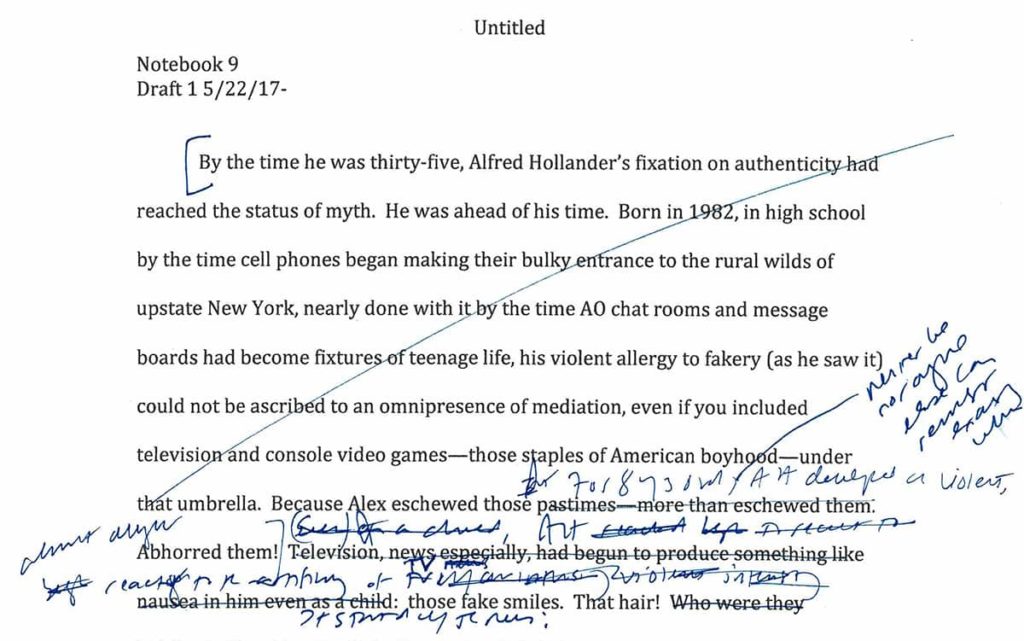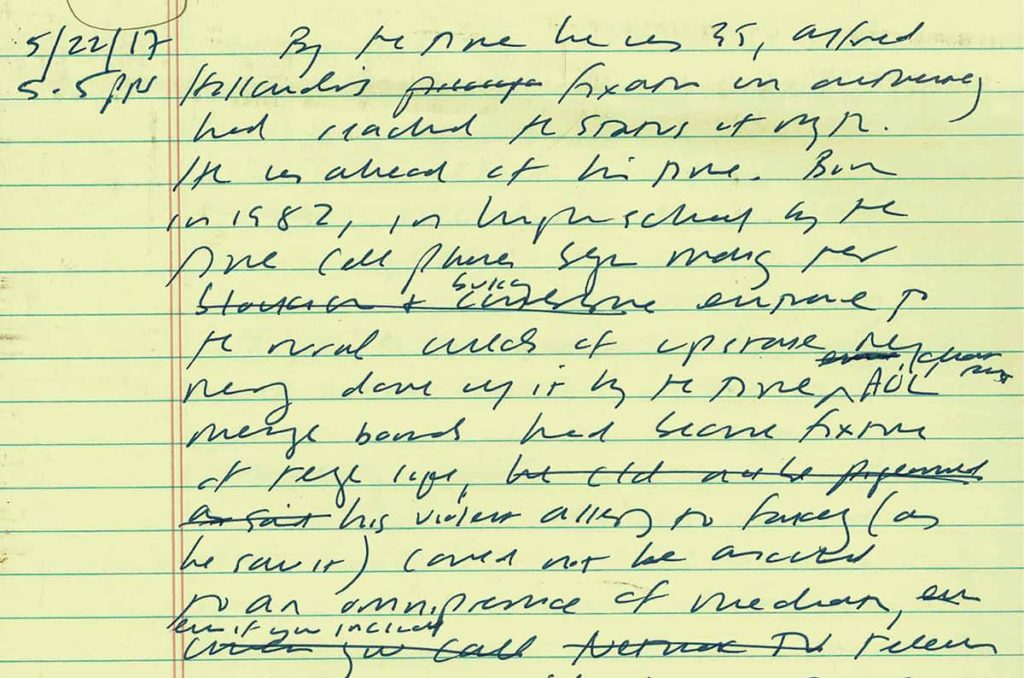Case Study:
No One Got Hurt
1
Nobody, including Alfred Hollander himself, is certain of when he first began reacting violently—“allergically” is the word he uses—to the artifice of TV. It started with the news: those fake smiles. That hair! Were they robots? Were they bobbleheads? Were they animate dolls he’d seen in horror-movie posters? It became impossible to watch the news with Alfred. It became hard to watch Cheers with Alfred. It became preferable not to watch anything with Alfred, who was apt to holler from the couch, still with a slight lisp: “How much are they paying her?” or “Who does he think he’s kidding!” It broke the mood.


Turning off the TV wasn’t enough; by age nine, Alfred’s intolerance of fakery had jumped the life/art barrier and entered his everyday world. He’d looked behind the curtain and seen the ways people played themselves, or—more insidiously—versions of themselves they’d cribbed from TV: Harried Mom. Sheepish Dad. Stern Teacher. Encouraging Coach. Alfred would not—could not—tolerate these appropriations. “Stop pretending, and I’ll answer you,” he would inform his startled interlocutor, or, more bluntly, “That’s phony.” His family cat and dog, Vincent and Theo, went through their days without pretense. So did the squirrels and deer and gophers and fish that populated the lake-abundant region of Upstate New York where Alfred grew up and where his father, Ted Hollander, taught art history at a local college. Why did people have to pretend to be what they already were?
There was an obvious problem: Alfred was difficult—or “a fucking nightmare,” to quote several witnesses. And there was a deeper problem: He poisoned his world. Many of us, wrongly accused of, say, spying for the Department of Homeland Security, or stalking a famous person whom we haven’t actually identified, will respond with guilt, anxiety, and attempts to telegraph our innocence. We behave, in other words, exactly as a surveilling Homeland Security agent, or surreptitious stalker, would behave. Likewise, adults charged by Alfred to “stop using that fake voice” would strive to act more natural and wind up acting less so: Parents played parents; teachers played teachers; baseball coaches played baseball coaches. And they got away as quickly as they could.
Family life was the epicenter of Alfred’s discontent. At dinner, he felt “asphyxiated” by the quiet supremacy of Miles, his oldest brother, who was organized and accomplished, and by the studied vacancy of Ames, the middle brother, who came and went invisibly and whose real thoughts were always out of reach. In reply to his parents’ innocuous questions about his day at school, Alfred often would bark, “I can’t have this conversation,” upsetting his mother, Susan, who treasured family time…